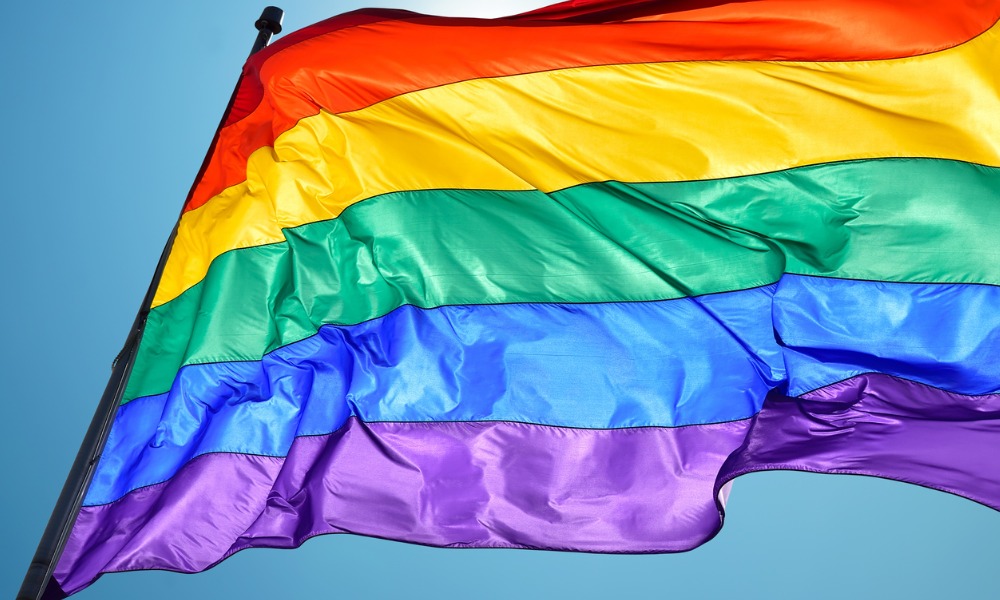
An employee's assessment of whether or not a workplace is LGBTQ+ inclusive begins long before a contract is signed

An employee’s assessment of whether or not a workplace is LGBTQ+ inclusive begins long before a contract is signed - in fact, it starts before a person is even officially in the workforce.
According to a study from the University of Waterloo, Creating inclusive co-op workplaces: Insights from LGBTQ+ students, inclusivity of organizations is something young people are thinking of before they even join the workforce.
“That was something we hadn’t heard much about before,” says David Drewery, research coordinator for the Waterloo Centre for the Advancement of Co-operative Education, PhD candidate at the university and co-author of the study.
Some of the study participants were making judgments about the inclusiveness of organizations during their co-op job searches, asking themselves if it was a place they could see themselves fitting in, he says.
“One thing that I might say to employers is they should start with a review of their recruitment strategies and materials and ask questions like, ‘What are potential candidates looking for? What are the constraints we have introduced into the recruitment stage that we might address?’ These are things employers need to think about before people even enter into their organization - that was clearly an insight we gained.”
Drewery, along with co-author Rebecca Mallozzi, set out to explore “the notion of inclusion from the perspective of LGBTQ+ co-op students in the context of their work term experiences, including searching for work and during the work term.” Drewery and Mallozzi conducted semi-structured interviews with eight LGBTQ+ students who had at least one previous work term experience at a Canadian university.
Research shows that LGBTQ+ people face difficulties in the labor market, including lower employment rates than equally qualified non-LGBTQ+ peers. One study from 2014 found that 30% of LGBTQ+ workers felt excluded at work, while only 2.9 per cent of the general population reported feeling that way. Applicants who identify as LGBTQ+ are frequently turned down for reasons related to their identities and often receive a lower hourly wage. This suggests LGBTQ+ co-op students would face similar issues during their work terms. However, research also tells us there are many business-side benefits to having a diverse and inclusive workplace, and Drewery says they entered into the study with that assumption.
He points to a 2017 study by Deloitte that found diverse and inclusive workplaces are six times more likely to be innovative and to anticipate change and respond effectively, and twice as likely to meet or exceed financial targets.
“That’s pretty profound,” Drewery says. “The Deloitte study is a really great example of the things we’re learning. There might be more openness to having these sorts of conversations but really the key point is it’s good for business. More people are interested in learning what they can do to create inclusive workplaces.”
The diversity in experiences is a benefit because it provides more potential insights to the organizations - when people come from different places they bring a wealth of experience with them.
“If organizations are savvy about it, they can leverage those sorts of experiences for organizational and personal success,” he says.
Participants also reported that when it comes to finding inclusive workplaces, efforts such as signs or rainbow flags posted around the office, inclusivity information on websites and gender neutral washrooms - essentially, virtue signalling - are welcome but don’t go far enough. The study’s findings suggests that interpersonal dynamics are critical - true inclusion operates on a social level, between people.
One of the biggest examples of interpersonal dynamics that spoke to inclusion was the use of language, and pronouns in particular.
“Our participants told us they felt excluded when others made assumptions about their gender or sexual identity and used language that reflected that, like when somebody says boyfriend or girlfriend when partner might be a preferred term,” Drewery says. “It might sound obvious, but day-to-day it’s not so intuitive.”
One of the unique aspects of the study is that it provides practical strategies for employers and for co-op departments to help create more inclusive workplaces, whereas most other research talks more about why it is an issue and the scale of it.
The study lays out actions for co-op administrators such as advocating on behalf of this group of students by promoting the benefits of diverse workplaces to employers; working with students to identify workplaces that are most accepting and inclusive; establishing training for students to feel more comfortable with their identity in a work context and for employers to improve the student recruitment experience.
An action plan for employers suggests providing inclusivity training for all employees and encouraging staff to advocate against any exclusionary language or behaviour they may witness.
Supervisors, he adds, are “the cornerstone of this whole piece” as they can model good behaviour for their team and are also the ones responsible for managing behaviours that might not align with the inclusive culture.
“Whoever is in a decision-making position can educate about the power of language and make sure people are treating each other in an inclusive way, and that includes how they speak to each other,” Drewery says. “A lot of it has to stem from a place of education."